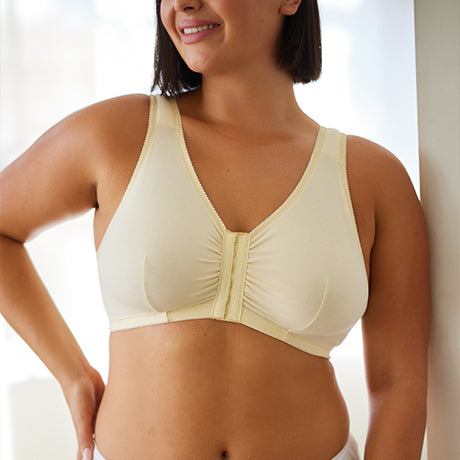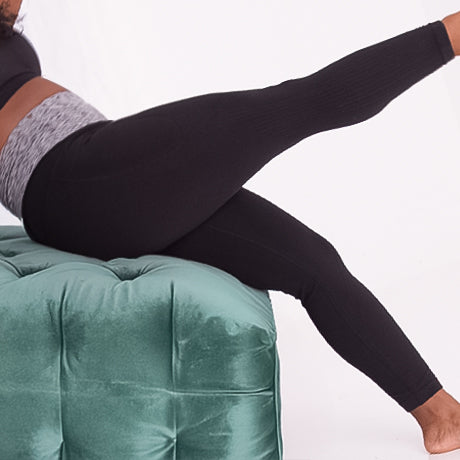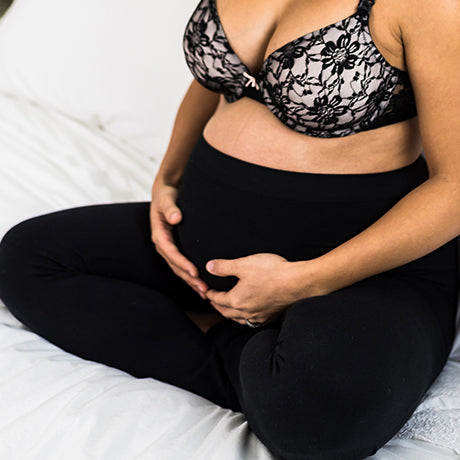A Healthy Vegan or Vegetarian Pregnancy Diet
Good news for green mamas: If you eat a vegan or vegetarian diet, there’s no need to change this lifestyle habit during pregnancy. While you may need to consume a bit more of certain nutrients, all that you need to sustain your developing baby can be found in a healthy vegan or vegetarian pregnancy diet.
Becoming Vegan or Vegetarian
Although a healthy pregnancy is possible as a vegan or vegetarian, becoming vegan or vegetarian during pregnancy is not advised. This dramatic shift in diet can leave your body in flux as it works to adjust to a different set of daily nutrients. Plus there’s a learning curve to becoming vegan and vegetarian that is better left for well before or well after pregnancy. Not having an established set of foods that offers the nutrients you need during pregnancy can leave you with gaps that are not healthy for you or your baby.
Precautions for Vegans or Vegetarians during Pregnancy
For those who are already living the vegan or vegetarian lifestyle, there are a few precautions you should know. Your health and your baby’s health should be your top priority. Be mentally prepared should your doctor tell you that you need to make dietary adjustments to continue a healthy pregnancy. The goal is for both you and your baby to have the best possible outcome.
Also, if you’ve never been pregnant before (and even if you have), you may not know how your body will react. Women face aversions and cravings all the time during pregnancy. If you can’t keep your vegan or vegetarian pregnancy diet down, you may need to consider a change in eating habits for awhile.
 A Healthy Vegan or Vegetarian Pregnancy Diet
A Healthy Vegan or Vegetarian Pregnancy Diet
A healthy vegan or vegetarian pregnancy diet requires a bit more attention to detail and planning than traditional diets without meat and dairy limitations because restrictions pose greater risks for deficiencies. Here are the important nutrients you need to hit up and where you can easily find them while maintaining a vegan or vegetarian diet during pregnancy:
Protein: Vegans and vegetarians are used to meatless sources of protein so this isn’t much of a shift during pregnancy. Moms-to-be need around 75 grams of protein a day, which can be found in nuts, beans, tofu, diary (for non-vegans), hemp, quinoa and lentils.
Iron: Iron intake is a big adjustment for non-meat eaters because you need twice as much during pregnancy to sustain your baby’s development and your own wellbeing. Iron helps boost red blood cells on their mission to oxygenate your baby and keep your blood healthy too. Remember, you have up to 50% more blood flowing through your body during pregnancy. Beans, nuts and cruciferous vegetables are good vegan and vegetarian sources of iron. You can also try iron-fortified breads and cereals or an iron supplement if your hemoglobin levels are low.
Calcium: Your baby needs calcium to grow bones, muscles, her heart and nervous system and she’ll get it any way she can, including by robbing you of your own calcium storage. That’s why you need about 1,000 mg per day of calcium during pregnancy. Vegetarians can go for dairy but there are plenty of vegan options for calcium including broccoli, kale, spinach, tofu, soy milk and calcium-fortified juices.
Vitamin D: Along with calcium, Vitamin D helps your baby develop a healthy skeletal system including bones and teeth. Vitamin D is found in many fortified breads, cereals and juices, or can be obtained from exposing your skin to the sun for a few minutes every day.
Vitamin B12 and Folic Acid: These two B vitamins help your baby form red blood cells and develop neurological functions. Folic acid can be found in many vegan and vegetarian favorites such as nuts, beans, avocado and dark green veggies. B12, on the other hand, is only found in meat. This is one nutrient you may want to consider supplementing once you discuss with your physician.
Omega-3 Fatty Acids: These cognition boosters will aid in your baby’s brain and nervous system development. For those who eat fish, salmon, sardines and other fatty fish are good sources of omega-3s. Otherwise, avocado, flaxseed, walnuts and chia seeds are vegan options for this essential nutrient.
Prenatal Vitamins: Like all pregnant women, vegan and vegetarian moms-to-be should take a prenatal vitamin to help ensure you’re getting plenty of the essential nutrients required during pregnancy.
The upside to a vegan or vegetarian pregnancy diet is that women tend to maintain a healthier pregnancy weight. Eating green often offers healthier choices if you don’t overdo it on sweets or high-fat dairy products.
Wondering what lies ahead for you as a vegan or vegetarian once your baby arrives? Later this week we’ll discuss a healthy vegan or vegetarian breastfeeding diet. Stay tuned!
Sources: What to Expect, New York Times and Fit Pregnancy
The post A Healthy Vegan or Vegetarian Pregnancy Diet appeared first on Leading Lady.





